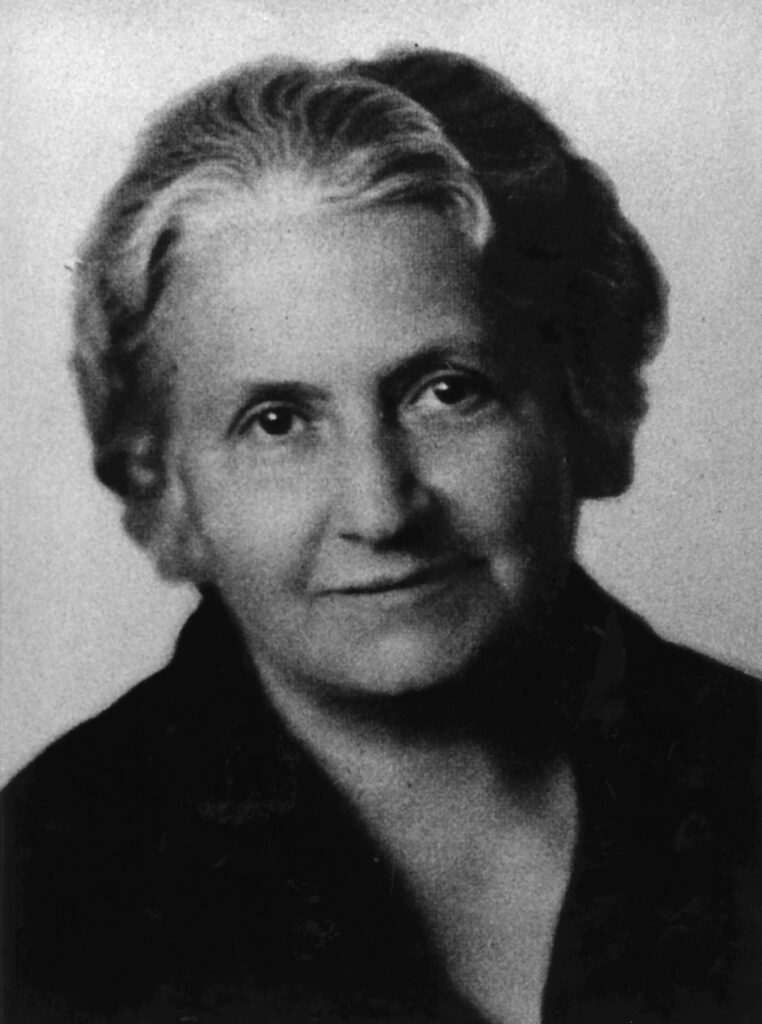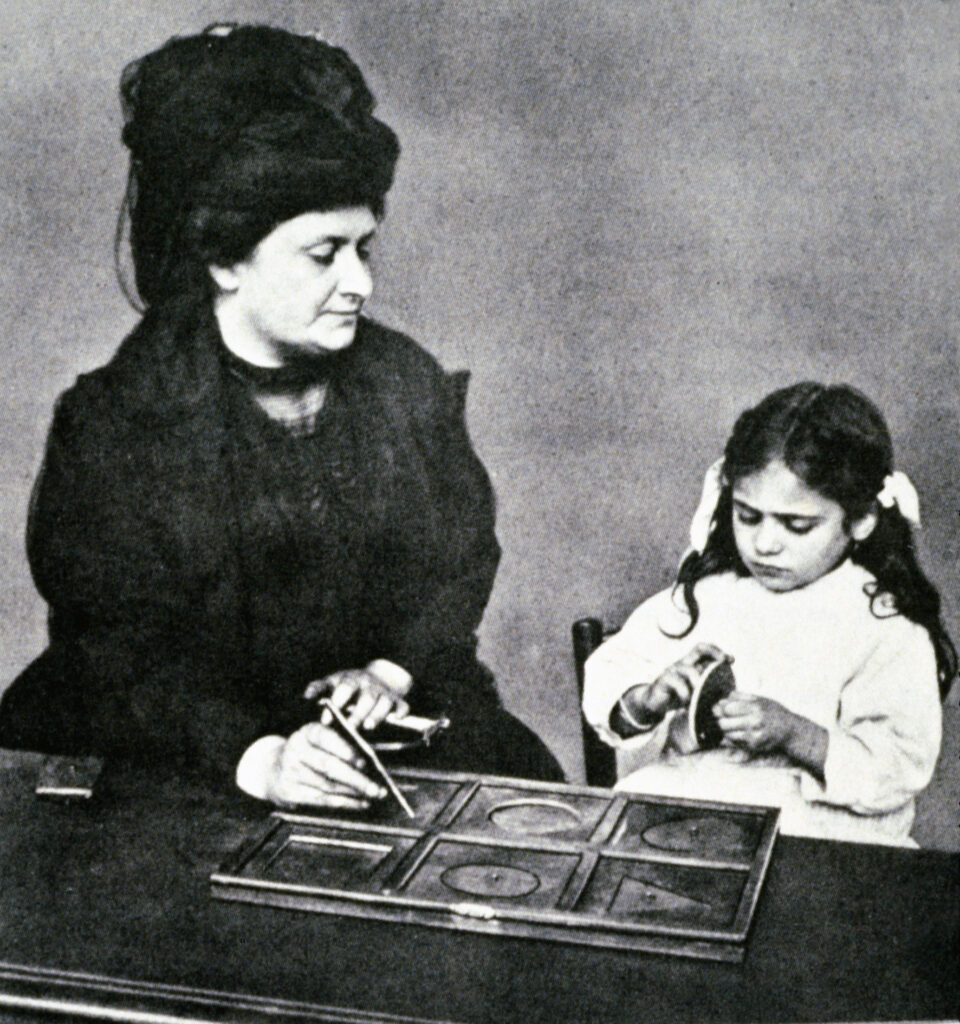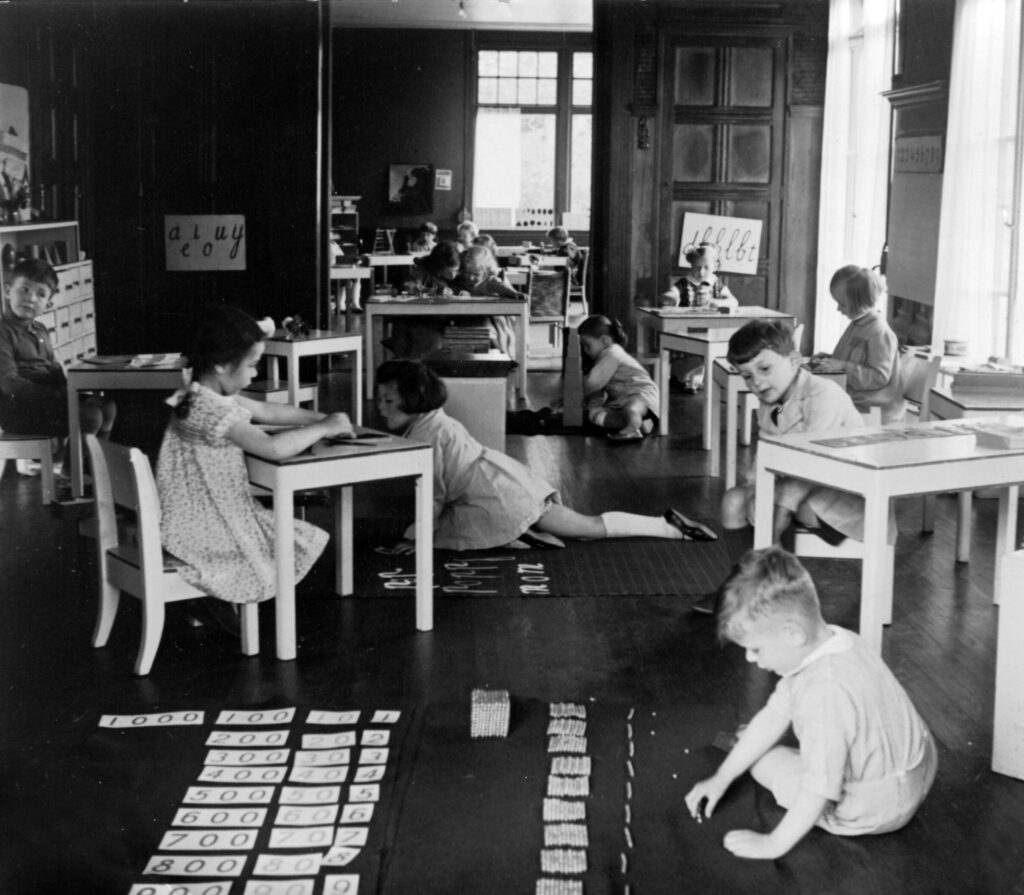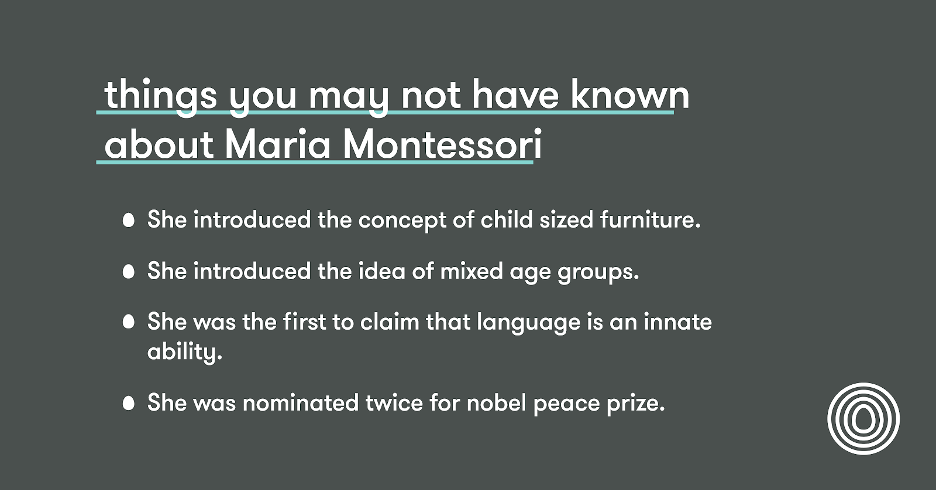On August 31st, the world celebrated the 150th birthday of Dr. Maria Montessori, a visionary who paved the way for change and progress in the schooling of children in order to create a better world.

Though we are not a Montessori center, Ethos respects and pulls many of the practices and ideas that Maria Montessori shared with the world.
In commemoration of her birthday, in this post, we will reflect and learn about Dr. Montessori and her contributions to the realm of early childhood and education.
Who was Maria Montessori?
Maria Montessori was born and raised in Rome for most of her life. She was a highly intelligent and scientific woman, who achieved degrees in engineering and medicine, which was unheard of for her time period and context.
After her schooling, Dr.Montessori worked in a psychiatric clinic where children were institutionalized if they did not follow normal development. While working at this clinic, she noticed that the children were not receiving what they needed in order to help them grow and reach their fullest potentials. She set out to help them by studying the works of Jean Marc Itard and Eduard Seguin, physicians who developed sensory stimulation methods and held beliefs that we should respect and understand each individual child (Itard, 1805, Seguin, 1846). This led to her interest in the development of children and how the reformation of education can push for social change, and essentially, a better world which enables respect, equity, and peace for mankind.
Dr. Montessori’s Work with Education:
Dr.Montessori spent the next 50 years or so of her life observing children in classrooms where she could study how children learned best. She developed materials and approaches for teachers to implement as she examined their effectiveness. The evaluations and studies that she executed, accumulated over her life to create a methodology and philosophy that was a radically different education system.

As her ideas grew, Dr. Montessori’s life became dedicated to spreading and furthering her educational approach to better serve children. She delivered courses, gave lectures, and continued to expand and adapt her methodology and materials through trial and error in many countries, including India, the United States, the Netherlands, and Spain. Her curriculum was broad, field-tested, and spanned the age groups of birth-12 . She founded AMI (Association Montessori Internationale), which continues to carry out her work and philosophy as she envisioned. Through her efforts and the work of her followers, Montessori education has since then, been adopted worldwide.
A peek into a Montessori classroom

Maria Montessori was a woman of many ideas and wisdom. In this blog, we have highlighted a few of the ideas and findings that Dr.Montessori believed in and utilized to formulate her curriculum and philosophy which are still in use today:
- Children are viewed as those who construct knowledge rather than empty vessels or canvas that need to be filled.
- A pristine appearance and order in the environment are highly valued because children are developmentally sensitive to order and it is a demonstration for respect for the space and of the individual. In addition, clutter and distractions disrupt the child’s development of focus.
- Concentration is necessary and important to one’s life. Directing one’s attention in concentrated ways fosters positive development and is trainable.
- Learning and wellbeing improves when we have control over our lives. Children pursue their own projects, choose what they want to learn about, and collaborate with colleagues of their choosing (collaboration is also considered conducive to learning).
- The curriculum is centered around observation of children, focusing on important skills and information the child needs, which come together in the child’s mastery rather than adult convenience and dependence, which makes the curriculum suited to how children learn and develop.

Dr. Montessori dedicated herself to advancing her child-centered approach to education, and thus a better humanity and peaceful world.
To all those that tried to emulate her, she said, “follow the child.”
This basic tenet is what makes Dr. Montessori’s work timeless and eternal. As we remember her on this day, we continue to mirror her dedication to making a better world through following the child and putting the needs of our children first.
Till Next Post,
Aleezeh Makani
Ethos is a new mindset and model for child care and early education for children aged 6 weeks to 5 years in the South Boston, MA Area. We pride ourselves on our dedication to serving our students and families in ways that are research-driven and nurturing to who they are and can become.
Request more information online here!